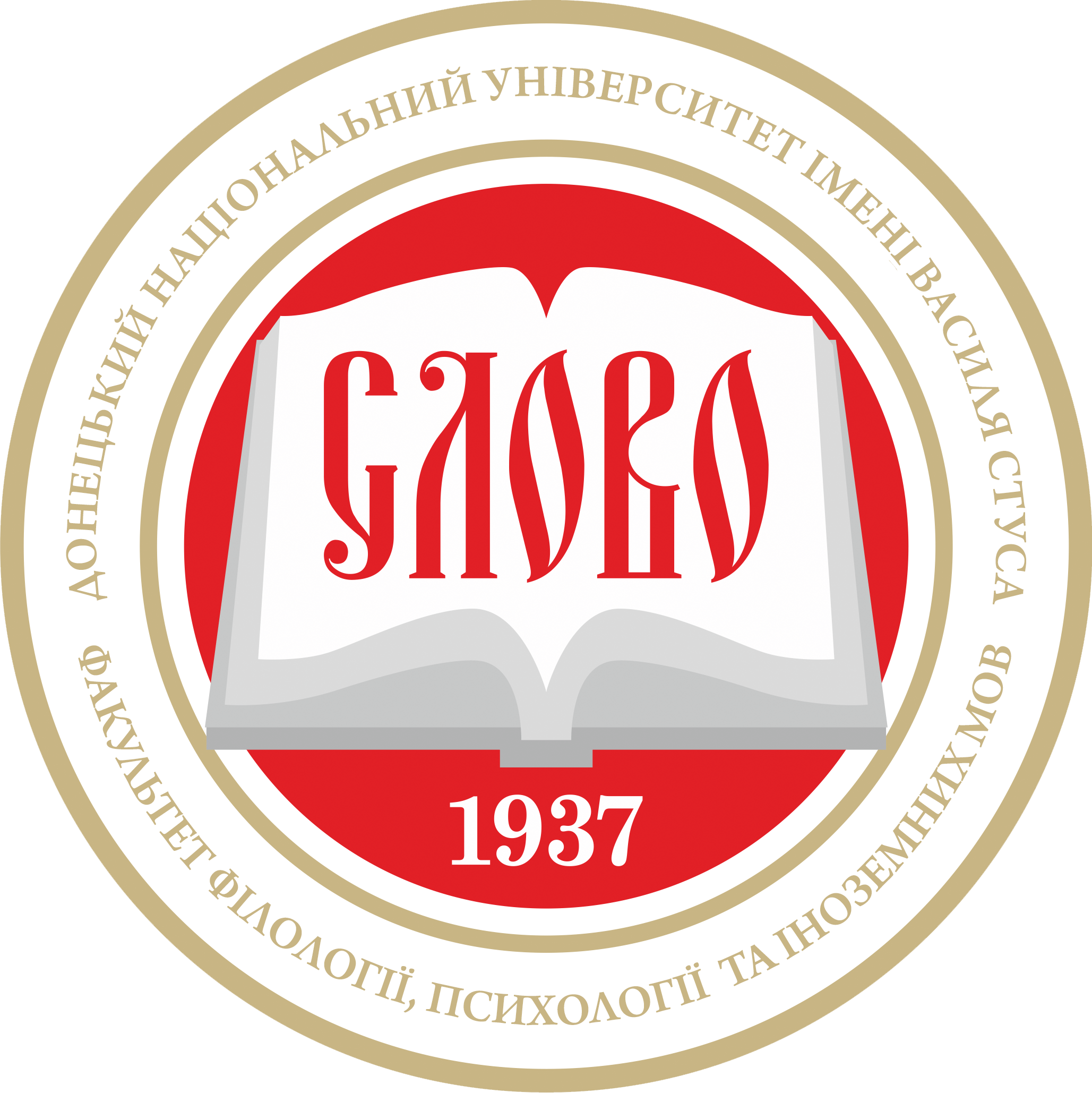Quality Board Meeting
4 червня 2025 року відбулося чергове засідання Quality Board міжнародного проєкту DigiFLEd, присвячене обговоренню ключових аспектів забезпечення якості в межах реалізації проєкту.
Основними питаннями порядку денного стали:
1. Аналіз результатів опитування щодо системи управління якістю DigiFLEd (Feedback Survey of DigiFLEd Quality Management).
2. Затвердження результатів опитування учасників після проходження вебінарів, проведених Харківським національним університетом імені В.Н. Каразіна (KKNU) та Національним університетом кораблебудування імені адмірала Макарова (NUOS).
Учасники засідання надали конструктивні зауваження та схвалили результати проведених опитувань, які свідчать про позитивну динаміку якості заходів проєкту.
Як наступний крок у реалізації проєкту визначено підготовку звіту щодо залучення здобувачів освіти до імплементації DigiFLEd. Зокрема, йдеться про участь студентів у розробці навчальних курсів та адмініструванні віртуальних хабів, які сприятимуть цифровізації освітнього середовища та посиленню міжуніверситетської співпраці.
On June 24, 2025, a regular meeting of the Quality Board of the international project DigiFLEd took place. The meeting focused on discussing key aspects of quality assurance within the framework of project implementation.
The main items on the agenda included:
1. Analysis of the results of the Feedback Survey of DigiFLEd Quality Management.
2. Approval of the feedback results following participation in webinars conducted by V.N. Karazin Kharkiv National University (KKNU) and Admiral Makarov National University of Shipbuilding (NUOS).
The participants of the meeting provided constructive feedback and approved the survey results, which indicate a positive trend in the quality of the project activities.
As the next step in the project implementation, it was agreed to prepare a report on the involvement of students in the implementation of DigiFLEd. In particular, this refers to students’ participation in the development of training courses and the administration of virtual hubs, which will contribute to the digitalization of the educational environment and enhance inter-university cooperation.
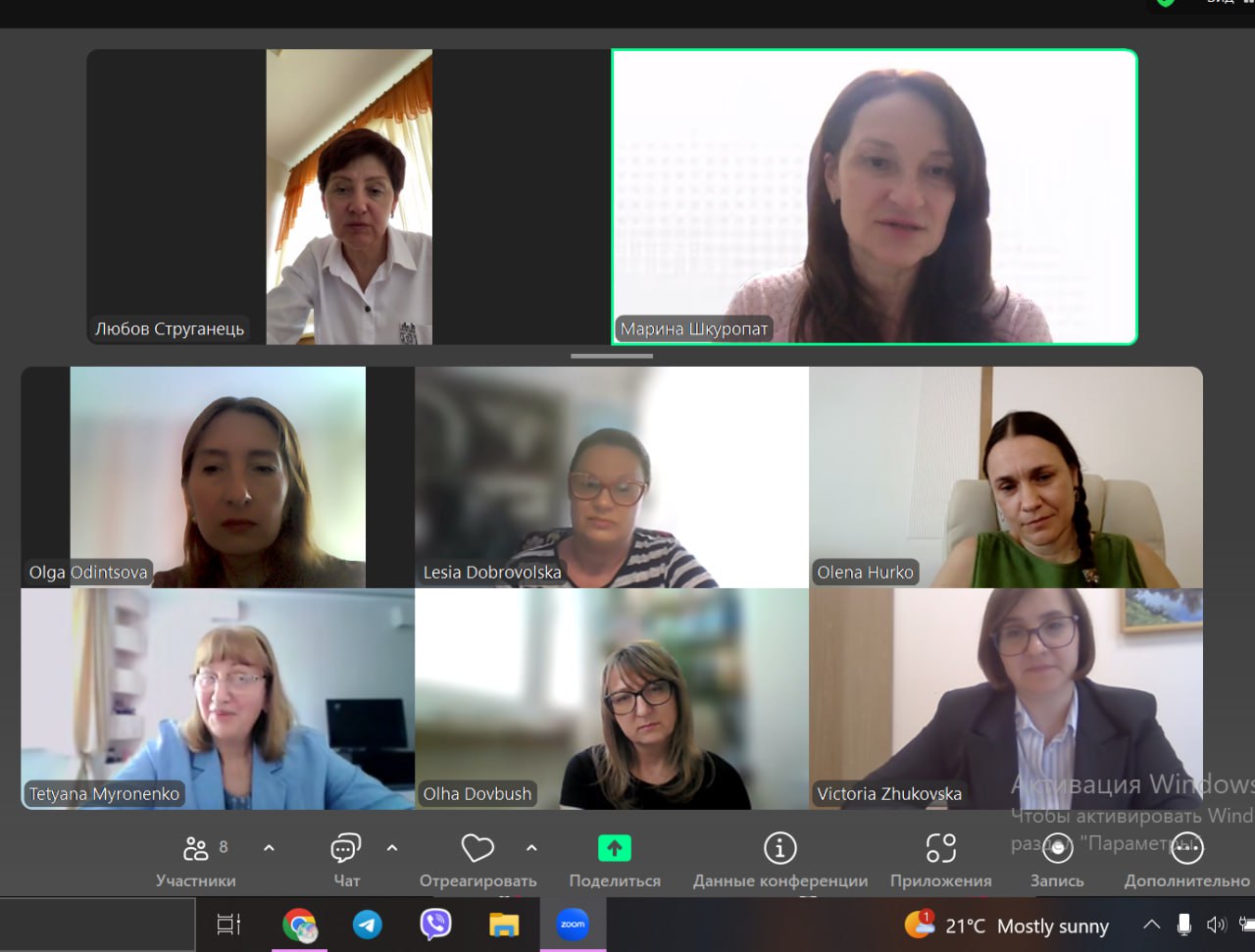
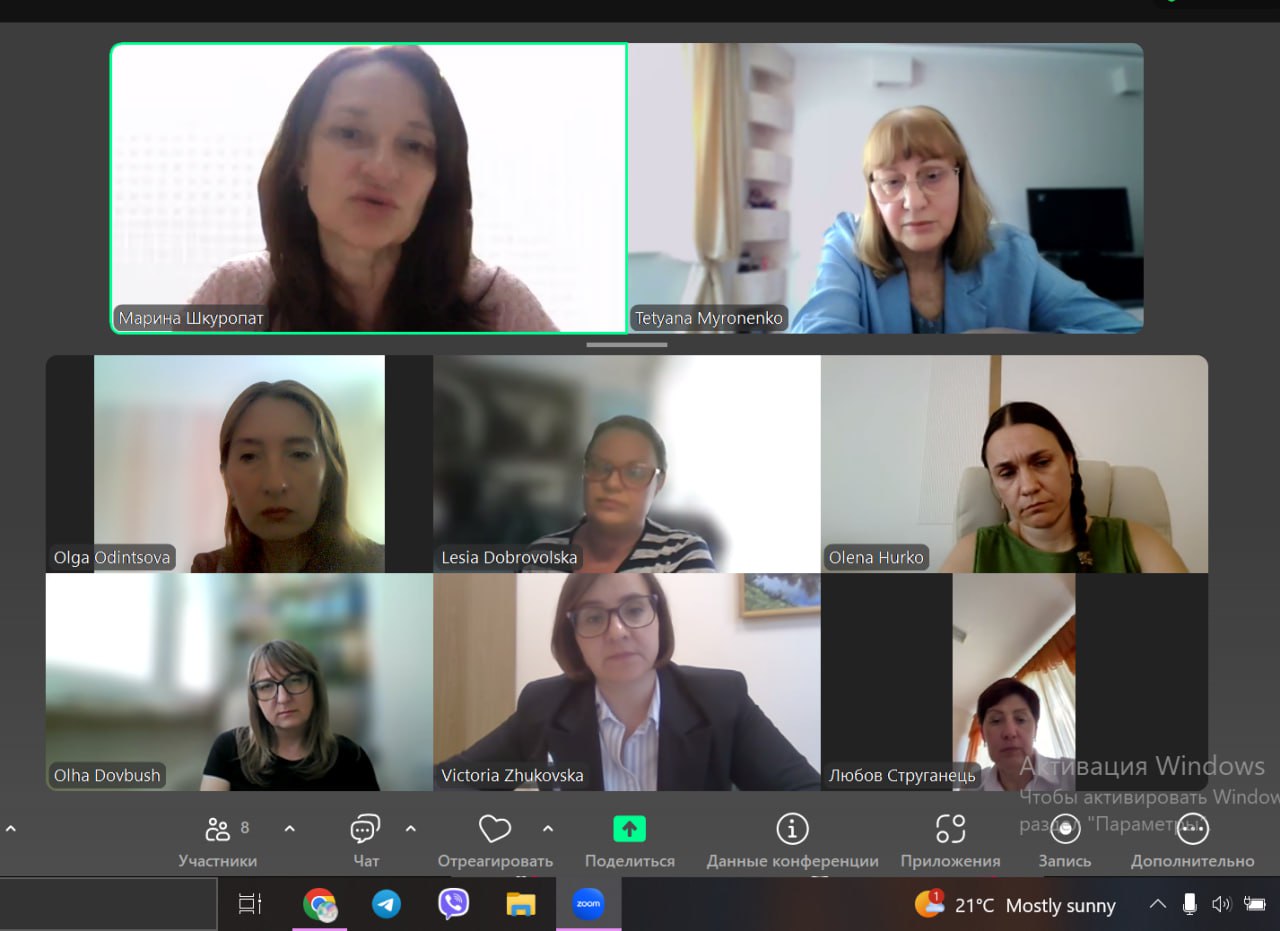
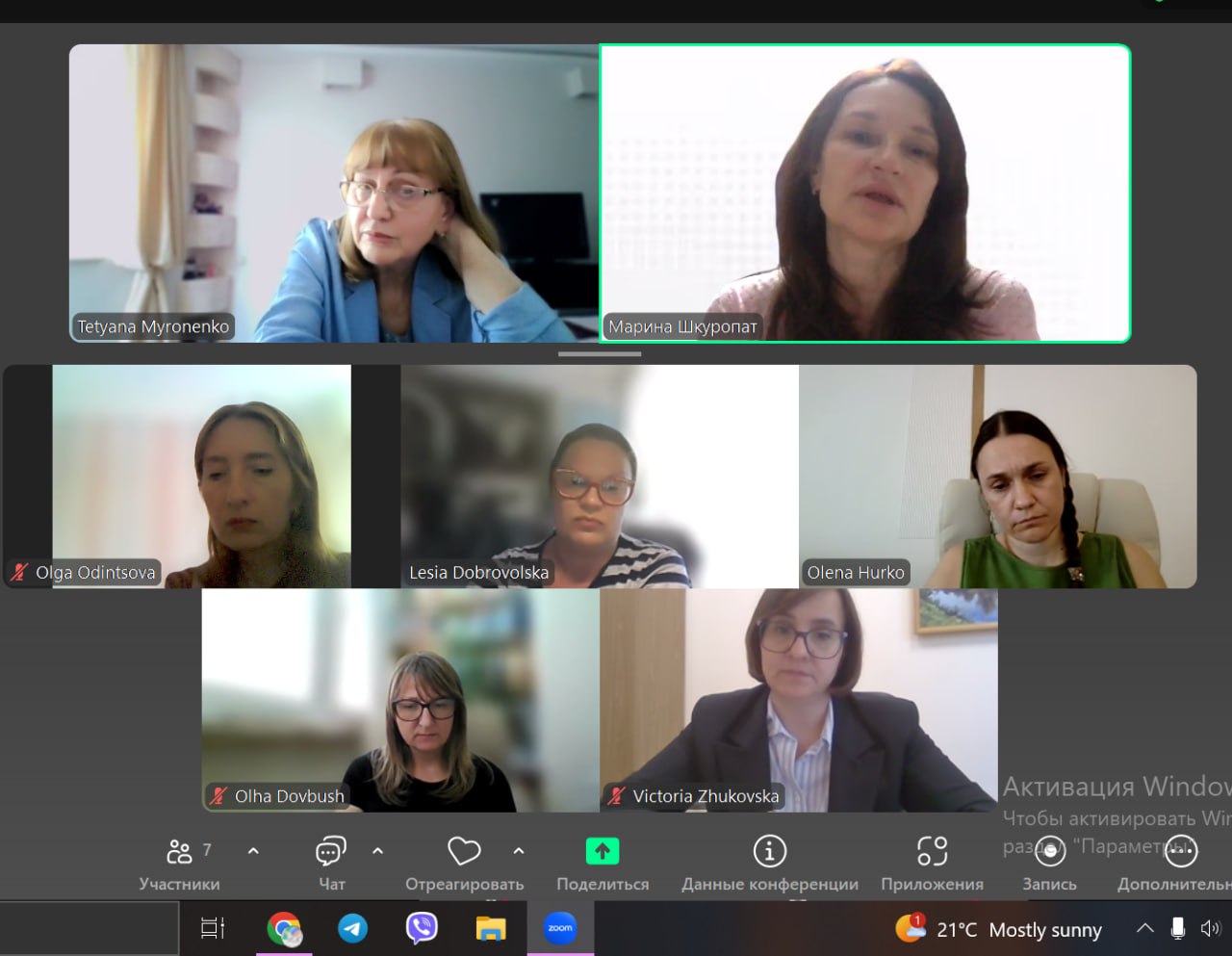

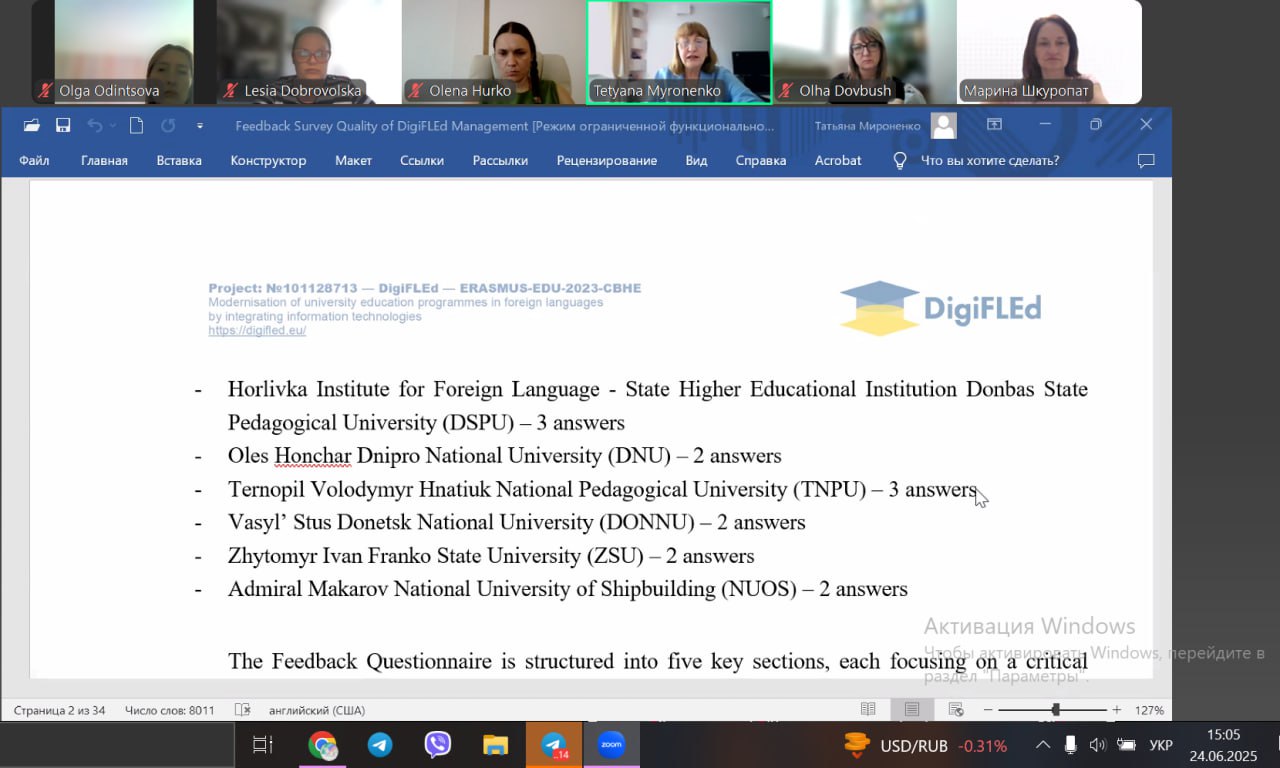
Співфінансується Європейським Союзом. Проте висловлені погляди та думки належать лише авторові (авторам) і не обов’язково відображають погляди Європейського Союзу чи Європейського виконавчого агентства з питань освіти та культури (EACEA). Ні Європейський Союз, ні EACEA не можуть нести за них відповідальність.
Co-funded by the European Union. Views and opinions expressed are however those of the author(s) only and do not necessarily reflect those of the European Union or the European Education and Culture Executive Agency (EACEA). Neither the European Union nor EACEA can be held responsible for them.
